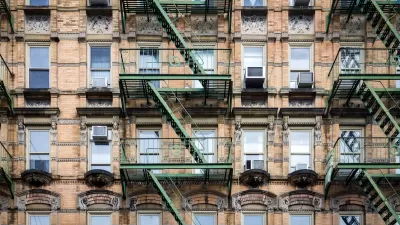Private industry often points to governmental regulations as a source of added expense that makes them less competitive. In this case, NYC's requirement two years ago that taxis accept credit cards has resulted in growth in ridership and revenue.
Paper or plastic? Cabbies dreaded the idea of being forced by a new city regulation to accept plastic, but lo and behold, their customers like it, and its showing....in tips as well as more fares.
"Overall ridership and revenue have increased. More and more fares are being paid with credit cards, even for shorter rides. And tips for drivers, usually an early casualty of tough times, are up sharply, double over the pre-plastic days."
Interestingly, NYC was actually late in coming to requiring plastic. However, unlike other cities, like LA, the city "pioneered a customer-friendly system that required no signed receipts, no minimum payment and an interactive device that let passengers swipe the card and add tips themselves."
Consequently, unlike most other cities (including LA), "revenues have risen about 13 percent from the end of last year, according to data collected by the city's Taxi and Limousine Commission. And tips, which hovered around 10 percent when cab rides were cash only, averaged 22 percent on credit-card transactions this fall."
Thanks to Mark Boshnack
FULL STORY: New York’s Cabbies Like Credit Cards? Go Figure

Alabama: Trump Terminates Settlements for Black Communities Harmed By Raw Sewage
Trump deemed the landmark civil rights agreement “illegal DEI and environmental justice policy.”

Study: Maui’s Plan to Convert Vacation Rentals to Long-Term Housing Could Cause Nearly $1 Billion Economic Loss
The plan would reduce visitor accommodation by 25% resulting in 1,900 jobs lost.

Planetizen Federal Action Tracker
A weekly monitor of how Trump’s orders and actions are impacting planners and planning in America.

Wind Energy on the Rise Despite Federal Policy Reversal
The Trump administration is revoking federal support for renewable energy, but demand for new projects continues unabated.

Passengers Flock to Caltrain After Electrification
The new electric trains are running faster and more reliably, leading to strong ridership growth on the Bay Area rail system.

Texas Churches Rally Behind ‘Yes in God’s Back Yard’ Legislation
Religious leaders want the state to reduce zoning regulations to streamline leasing church-owned land to housing developers.
Urban Design for Planners 1: Software Tools
This six-course series explores essential urban design concepts using open source software and equips planners with the tools they need to participate fully in the urban design process.
Planning for Universal Design
Learn the tools for implementing Universal Design in planning regulations.
Caltrans
Smith Gee Studio
Institute for Housing and Urban Development Studies (IHS)
City of Grandview
Harvard GSD Executive Education
Toledo-Lucas County Plan Commissions
Salt Lake City
NYU Wagner Graduate School of Public Service




























